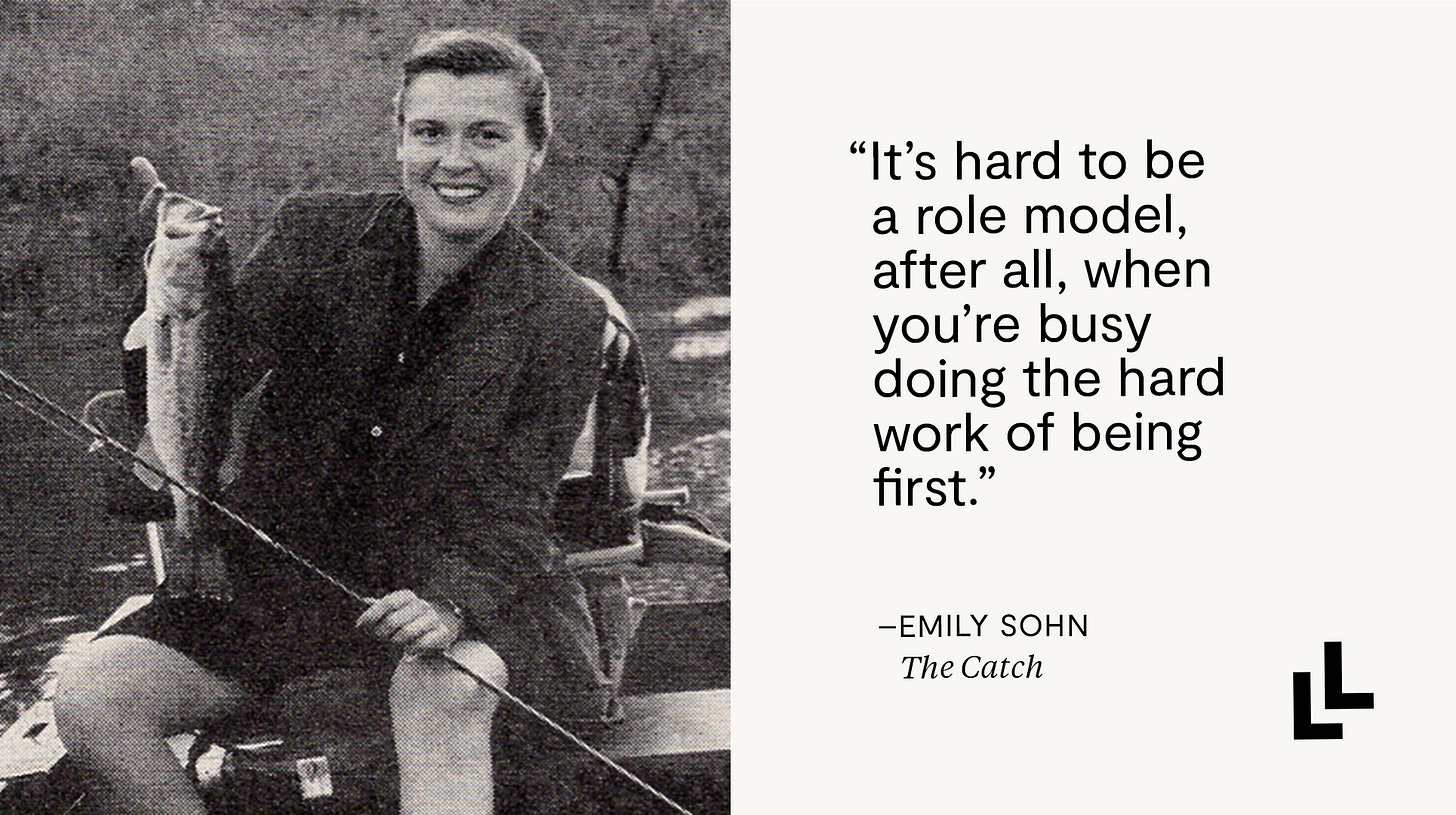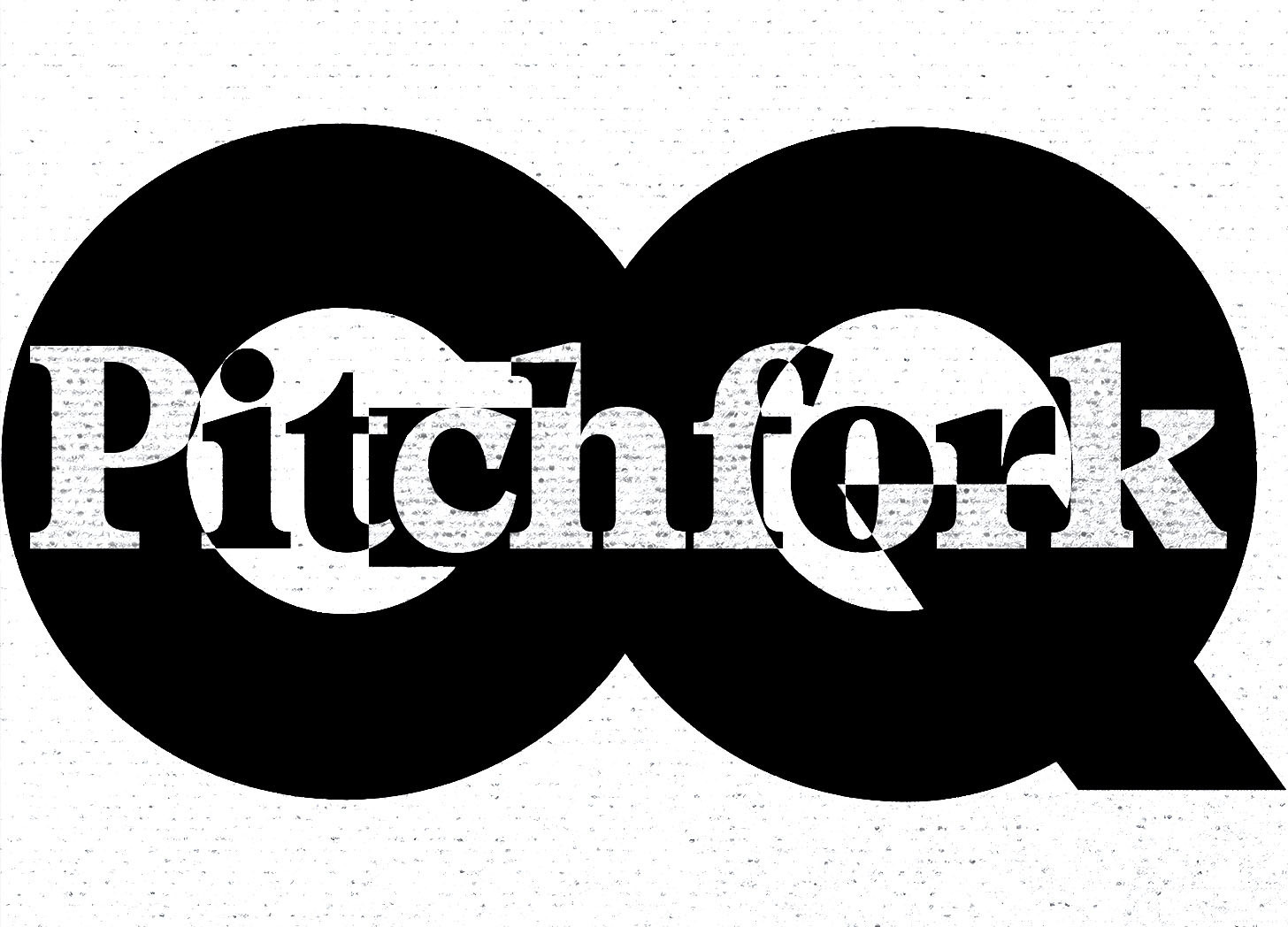Keep calm and query on: "Just keep pitching like everything is fine”
Freelancing guru Tim Herrera on how independent journalists can survive these dark days. Plus, Pitchfork’s Amy Phillips picks its most "magic" longform.
“God, what a year the past four weeks have been,” writer and freelancing expert Tim Herrera tells Depth Perception. “I can’t remember a darker or bleaker time, made all the worse by just how quickly things have deteriorated.”
Herrera’s sentiment isn’t exactly uncommon, and the lack of immediate optimism for our dear industry is far from unwarranted. Still, he plugs along because, honestly, what else is there to do? The dire state of journalism makes his Freelancing With Tim newsletter and one-on-one coaching and editing sessions that much more valuable to readers, writers, and newsroom leaders. The former New York Times writer will be the first to admit that even he doesn’t have all the answers, and that the current era of freelancing is “rough.”
“I’ve found myself kind of drawing a blank when I work with freelancers and they ask me who’s taking pitches, or how to frame a pitch for the current time or strategies for working through this, because I honestly don’t know,” Herrera says. “Freelancing is a tough business, but right now I feel like it’s the toughest I’ve seen as long as I’ve been working directly with freelancers.”
So what does an independent journalist do? “The advice I kind of fall back on is: No one has any idea what any newsroom’s freelance budget looks like right now, or what any given newsroom is going through internally, so you might as well cast a wide net and just pitch everyone,” he says. “Swing for the fences and pretend things are fine, because it’s either that or just give up entirely. At this point we really have nothing to lose by going after everything, so have at it, you never know. I always say the only way to get bylines is to get bylines, so just keep pitching like everything is fine.”
As for the hundreds of journalists who were just laid off and may be getting into freelance work, Herrera’s biggest single piece of advice is to start building networks.
“Freelancing can be very lonely and isolating, and you don’t have that institutional support you had as a staffer. The best way to survive as a freelancer, in both good times and bad, is to have a wide network of folks you can rely on, ask for feedback from, get advice from, get leads from or sometimes just to bitch to,” he says. “The freelance community is incredibly open, honest and willing to share everything, so really dive in and involve yourself in that. Those relationships are what keep us all afloat out here.” —Parker Molloy
Why did you become a journalist?
I’m gonna give the least charming and endearing answer: Because my first two choices — chemical engineer and anthropologist — required too much school. But! Things always work out in the end, and very early on in my career I realized journalism should’ve been my first choice all along.
I’ve written a lot about finding a career that aligns with your values and ambitions and gives you fulfillment, and years ago I figured out that journalism is that for me. The thing I value most — in work and in life in general — is helping people to live a better life, and for me, journalism is the best avenue through which to do that. At its core, that’s what good journalism does. That can take a lot of forms, but this career path is inherently all about service, and that’s exactly where I want to be.
And less philosophically, it’s just fun. What other career lets you talk to interesting people and write about interesting and impactful things for a living?
What story of yours are you proudest of?
I don’t know if this is necessarily the story I’m most proud of, but it is definitely the one that, based on reader feedback and everything that happened after its publication, had the most impact: It’s Never Going to Be Perfect, So Just Get It Done. The amount of people who wrote to be responding to that story was utterly astounding, literally in the thousands. I ended up doing this full press blitz for it, like all the morning shows and tons of interviews and stuff, and it remains the most popular thing I’ve ever written.
I think it works on a few levels: It’s super relatable — who hasn’t gotten mired in the muck when trying to perfect a project? — but it also has this really comforting and welcoming tone that I think really exemplified the emotional energy I tried to bring to my work on Smarter Living at The Times. It takes this big idea — should we strive for perfection? — and breaks it down into something that feels less intimidating and more like a common struggle everyone shares in. So I dunno, maybe it is the thing I’m most proud of.
What story of yours do you most regret?
Thankfully I really only have one. Very early in my career, probably my first year as a reporter, I was covering New York politics. I was working on a somewhat sensitive story, and I included a response from a politician’s spokesperson that I inadvertently took out of context in a way that misrepresented what they were saying. It was an honest, albeit very careless, mistake, but one that required a correction. It was humiliating, humbling and a shock to my confidence. A real learning experience. Mistakes are part of the process, and that’s how we grow, but some are harder to forget than others.
What’s the best journalistic career advice you ever received?
“Don’t pull up the ladder behind you, throw down ropes.” My mentor always used to say that to me, and I think it’s the best career advice for any industry, but especially journalism. It’s a cutthroat industry, and I think we’ve all felt the pressure of competition, but it doesn’t have to be that way! We all need help sometimes, and if we ever find ourselves in the position of having a little success, it should be incumbent on us to help others succeed, too. It’s so easy to become cynical as a journalist — especially now that jobs are disappearing and we’re all competing for the precious few that remain — but I think having the mindset of helping others succeed along with us is the only way to survive and keep your sanity (somewhat) intact.
Virginia Kraft hunted with kings, drank with Hemingway, and was deadly with a rifle. In magazine journalism’s Mad Men era, she broke barriers penning epic adventure features as Sports Illustrated's first woman writer.
So why hasn’t anyone heard of her?
Read The Catch on Long Lead.
What is the worst journalistic career advice you’ve ever received?
All that shit about “paying your dues.” Just the idea that to succeed you need to do unpaid labor, stay extra hours at the office, do shit work, blah blah blah. When I was coming up that was really the outlook for the industry, and for a while I really did buy into it. But now I realize that’s just how the “Powers That Be” milk more and more out of us without balancing things to make it worthwhile. But I’m sure everyone could give that same answer.
What is a widely accepted journalistic rule or norm that you hate?
That journalism is a “calling” or some mystical noble honor bestowed upon the chosen few. It’s a job! We do this to make money. All of the self-righteous journalists who crow about how they were called to the industry, or that they were destined for this career, wouldn’t do it for free, no matter how much they want us to believe that.
What was the most indulgent media event you've ever attended?
So not quite a media event in the sense of inviting journalists for a purpose, but Google’s holiday parties are absolutely bananas. I remember one year the theme was “carnival,” and they literally set up like an actual, bona fide carnival indoors, complete with games, rides, carnival food, clowns, jugglers, face painting, tons of performers, and more food than you can imagine. Like the budget for that party alone was basically a year’s budget for a midsize newsroom. Just insane.
What’s one app, tool, or service that you can’t do your work without?
Airtable! Oh man I love Airtable. I’ve run through pretty much every productivity/activity/task-tracking app there is — mostly because of the work I did with Smarter Living at NYT — and I’ve never found one more useful or intuitive than Airtable. I track pretty much every bit of work I do through it, and it’s soooo easy and practical. I know it’s dumb to get so hyped up about a task-tracking tool lol, but it’s just that good.
Also, and don’t make fun of me for this, but LinkedIn! It’s a secret weapon, and if you’re good at it you have such a leg up in the industry. (I even sang its praises in my newsletter!)
What makes you think journalism is doomed? Or is it not?
I don’t! I think maybe the way we’ve been doing things for a while is doomed, but as an industry I think (eventually, definitely not any time soon) we’ll be okay. Maybe I’m too optimistic, but I just don’t buy into the idea that journalism as a thing is going to come to an end. There’s that stupid cliche about the industry we’ve all heard: “It’s a terrible time to get into journalism, but it’s always been a terrible time to get into journalism.” I graduated from college in 2010 at the peak of the panic that the internet was going to outright kill all journalism. Did it? Nope, it just changed it. I think we’re at a similar precipice now.
Look at things like worker-owned outlets; that to me seems like a big opportunity for sustainability that we haven’t yet figured out, but it could be promising. I think one potential endgame for this particular era of media is that a handful of enormous, national/international publications will thrive and dominate culture and the national discourse — places like NYT, WaPo, CNN and WSJ that are, ahem, Too Big To Fail — and then everything else will be splintered off into tiny niches that people will pay for. If you look back at the last ~100 years of journalism, it’s cyclical: A new technology comes along and destroys its predecessor, then rinse and repeat. We’re absolutely at a low point right now, but journalism is too important not to eventually bounce back.
Pitchfork’s outgoing executive editor, Amy Phillips, looks back on the music site’s most “magic” stories
On January 17, publisher Condé Nast announced that it was folding Pitchfork — the highly influential, nearly three-decade-old music site — into the men's publication GQ. In the process, the company laid off at least a dozen Pitchfork staffers.
The move was met with bewilderment and anger in media circles and in the music industry. “It is bleak on so many levels, first and foremost the job losses during a straitened time for media,” wrote former staffer Laura Snapes in The Guardian. “Incorporating Pitchfork into a men’s magazine also cements perceptions that music is a male leisure pursuit and undermines the fact that it was women and non-binary writers… who transformed the website in the 2010s.”
Among those laid off were Pitchfork’s editor in chief, Puja Patel, and the site’s executive editor, Amy Phillips, who had been there for more than 18 years. “I started there when I was 23,” Phillips tells Depth Perception. “So basically my entire adult life I got to spend with a group of people who are as passionate about music as I am.... It just felt like this magic little area of the internet.”
To honor the magic, Depth Perception asked Phillips to name some of the most noteworthy stories in Pitchfork’s history. She shared 21 links with us, but due to space considerations, we’re running 10. (The irony that a newsletter dedicated to longform journalism has space considerations is not lost on us.) —Mark Yarm
“Pitchfork’s 25 Next Roundtable: Yaeji, Bartees Strange, Amaarae, Angel Bat Dawid, and KeiyaA on the Future of Music” by Alphonse Pierre (Oct. 21, 2021)
“This cover story was special for many reasons, one of which was because it was done during the 2021 Pitchfork Music Festival, which was the first festival of ours since the pandemic started. And it really exemplifies what Pitchfork was all about in terms of music discovery: Here are these five artists that we really care about; let’s get them together to talk to each other.”
“Machines for Life” by Ryan Dombal (May 14, 2013)
“This is from what I consider the heyday of our cover stories. There are not a lot of Daft Punk interviews in the world, and that a little-in-the-grand-scheme-of-things publication got to do something like this was very cool. Ryan really captured the magic and mystery of Daft Punk in this piece.”
“Moses Sumney Is Ready to Claim His Spotlight” by Rawiya Kameir (Feb. 20, 2020)
“This one is a prime example of the new era of cover stories that started when Puja Patel became editor in chief in 2018. It exemplifies one of the other things that Pitchfork does best, which is finding an artist right on the cusp of breaking out and capturing them in that moment.”
“Billie Eilish Rates Being Homeschooled, Goths, and Invisalign | Over/Under” (July 8, 2019)
“At Pitchfork, video was such a huge part of what we did for so long. I did this interview, and the shoot was wild. Her mom was there and had to sign the release forms because Billie was under 18. They got into a huge argument because Billie really wanted to talk about porn in the video, and her mom was like, ‘I'm not letting you.’ It was amazing.”
“Anthem of the Peaceful Army - Greta Van Fleet” review (Oct. 23, 2018) and “Rush! - Måneskin” review (Feb. 7, 2023) by Jeremy D. Larson
“These are two record reviews written by Jeremy Larson, who’s still reviews editor at Pitchfork. And they exemplify the Pitchfork pan. They are the gold standard: funny, but insightful, making broader points about the music industry. They’re also two of our highest-traffic reviews ever. People really enjoy reading well-written pans.”
“Fetch the Bolt Cutters - Fiona Apple” review by Jenn Pelly (April 17, 2020)
“Here’s the opposite perspective. This is Jenn Pelly’s incredible review of Fetch the Bolt Cutters, which is our most recent 10.0 album that is not a reissue or a Sunday Review. This came out right at the beginning of the pandemic, when we were all going insane, and Jenn channeled that energy into this beautiful review.”
“XXXTentacion’s Reported Victim Details Grim Pattern of Abuse in Testimony” (Sept. 8, 2017) and “Arcade Fire’s Win Butler Accused of Sexual Misconduct by Multiple Women; Frontman Responds” (Aug. 27, 2022) by Marc Hogan
“These are deeply reported pieces that shone a light on bad behavior by musicians. When given the resources and the time, we could tell stories that nobody else was telling — whether it’s about an up-and-coming artist like XXXTentacion or a core Pitchfork artist like Win Butler. This kind of reporting is something that I really hope can continue anywhere, but particularly at Pitchfork.”
“Death Is Real: Mount Eerie’s Phil Elverum Copes With Unspeakable Tragedy” by Jayson Greene (March 13, 2017)
“Phil Elverum’s wife had recently died, leaving him with their infant daughter, and he had just made an album about it. This is the one interview he granted, and it’s with Jason, who sadly had lost his own daughter a couple of years before. This piece came out while I was pregnant with my own daughter. It was just a very powerful, emotional, deeply beautiful piece that couldn’t have been done by anyone else.”











HI PARKER AND MARK YARM THIS IS VERY GOOD
This is great. Thank you for doing it!